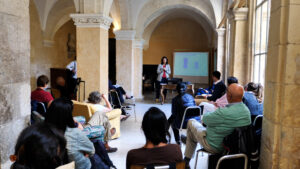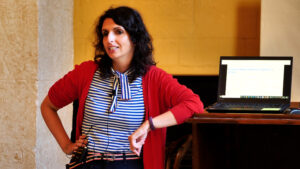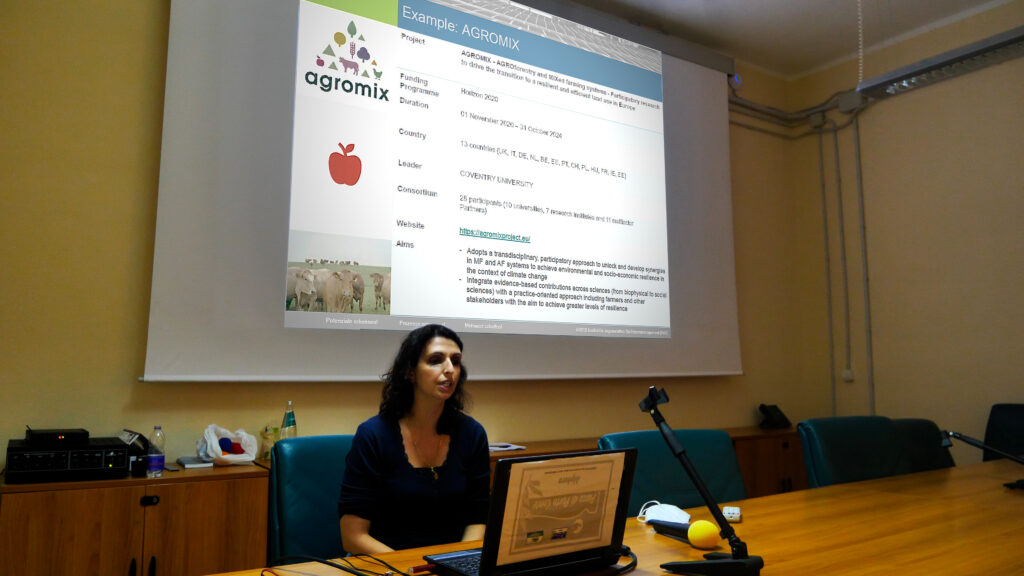From the 3rd until the 7th of October 2021 the “Green Economy, Climate and Biodiversity Conservation and Education for Sustainable Development (ESD) for a Sound Prosperity – An Interdisciplinary and Transdisciplinary Dialogue- Platform on the Italian Island of Sardinia” – DAAD Symposium has taken place in Sardinia. The symposium was organised by L´Univerista´ Degli Studi di Sassari, Universität Bonn, and Hochschule Bonn- Rhein- Sieg to create a long-term dialogue platform between Germany and Sardinia on Education for Sustainable Development and on how can Green Economy contribute to sustainable development, biodiversity protection and the creations of new jobs in Sardinia.
Zaira Ambu Project Manager of the Biomass and Cultural Landscape Development Department of IfaS was invited to participated as a speaker to this event with a presentation on “Environmental and socio-economic benefits of the integration of multi land-use approaches: examples from local and international cooperation” providing concrete examples of how multi land-use systems such as Agroforestry (AF) and Mixed Farming (MF) can play a key role in the environmental and socio-economic development in line with the Green Economy model. The presentation encompassed two projects led by IfaS in Germany: the eip-agri project Munter focusing on “development of management systems for farmers and municipalities for more environmental and nature protection” through optimisation of agroforestry systems and the DBU project EvA for the “development of innovative agroforestry systems” applying the Keyline design.
Whereas, it was presented as an example of international cooperation, the H2020 project AGROMIX “AGROforestry and MIXed farming systems -Participatory research to drive the transition to a resilient and efficient land use in Europe” in which IfaS is a partner and manages one of the pilot sites. The project with 83 study sites and 12 pilots for nested approach is a great example of how a participatory approach can lead to unlocking the development of synergies in MF and AF integrating evidence-based with practice-oriented approaches incorporating also farmers and key actors in the process to achieve socio-economic resilience of these systems.
During the “Workshop 1: Biodiversity & Green Economy: focus on coastal and rural habitats” held by Ms. Zaira Ambu together with Prof. Dr. Wiltrud Terlau, a more in-depth discussion was carried out on how the Green Economy Model can be applied in Sardinia, which are the key actors that should be involved and what are the required conditions to make this transition feasible and successful also considering the possible key role of the multi-use land system.



